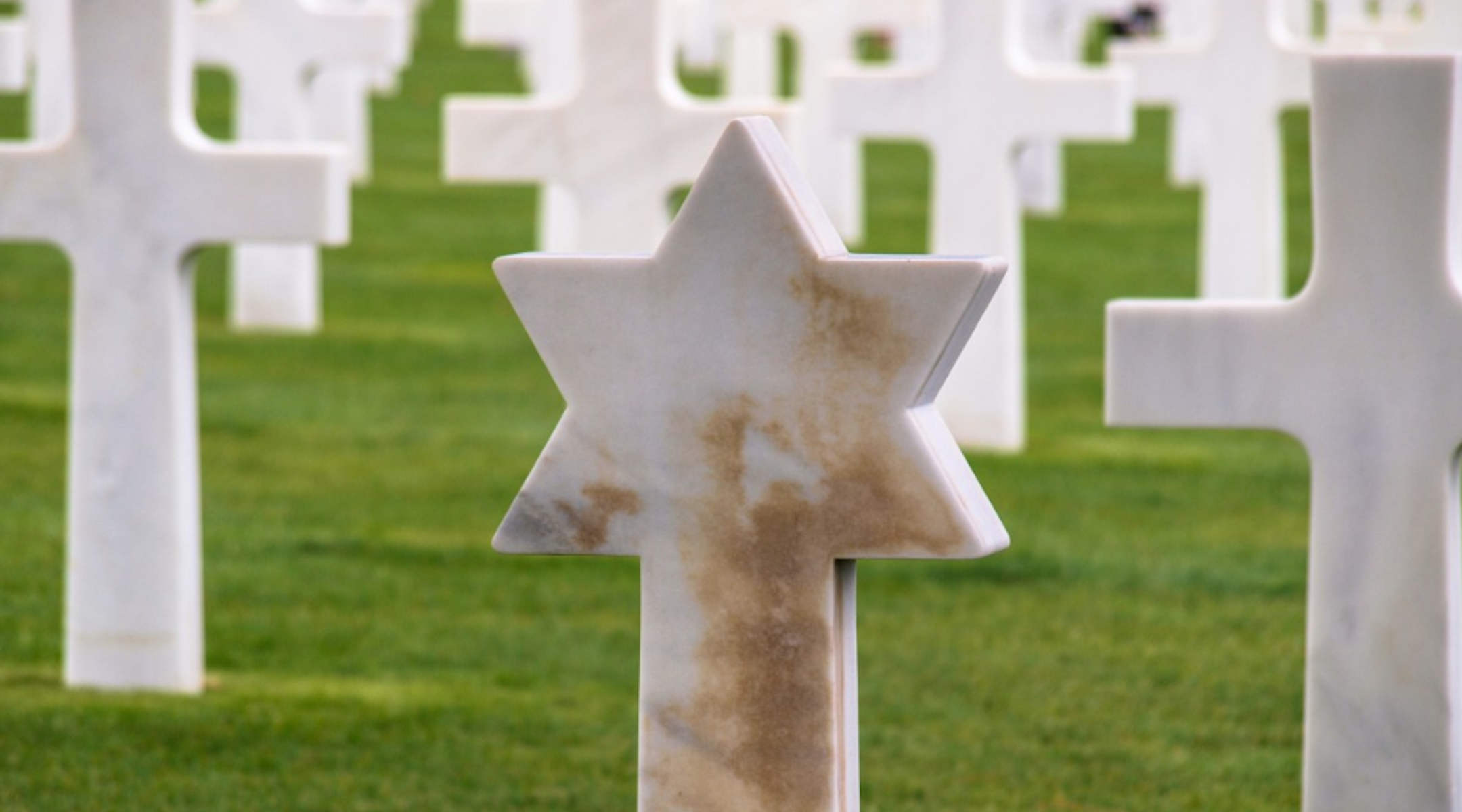President Carter today visited the Saint Laurent Cemetery at Omaha Beach where dozens of Jewish Gls are buried. The President stood with bowed head before a tomb topped with a Star of David in which a 23-year-old Jewish boy from New York, a farmer member of the 29th Infantry Division, is buried.
The cemetery archives reveal a large proportion of Jews served in the 1st and 29th Infantry Divisions which stormed the Normandy coast’s Omaha Beach on the “longest day” of 1944–D Day. Nine thousand farmer American Gls are buried in the Saint Laurent Cemetery where Jewish chaplains regularly recite kadish for the fallen.
The President visited the cemetery here this morning on the second day of his state visit to France. He spent long moments looking at the mass of tombstones and afterwards climbed the hill on which hundreds of U.S. troops died while pressing towards the city of Bayeux.
On his way back to Paris, the President held his second political talk with French President Valery Giscard d’Estaing. French and American spokesmen said later that the Middle East was the major subject discussed. Secretary of State Cyrus Vance and French Foreign Minister Louis de Guiringaud attended the talk which took place on the train to Paris and lasted nearly two-and-a-half hours.
AGREEMENT ON THREE BASIC POINTS
A French spokesman said Carter explained in detail his position and informed Giscard of his recent meeting with Egyptian President Anwar Sadat in Aswan. The French said Carter and Giscard agreed on three basic points:
The need for “a global settlement” and not for a separate Israeli-Egyptian peace.
The importance of having “a declaration of principles” at the start of the forthcoming talks due to open in Jerusalem on Jan. 15. In that connection, the French said Carter reiterated, with emphasis, his conviction that such a declaration, adamantly opposed by Israel, could enlarge the talks and bring other Arab leaders such as King Hussein of Jordan to join them.
The need for Israeli “flexibility” to turn the talks into a success. The French said the President used the word flexibility, on several occasions during the meeting.
French spokesmen, moreover, said Giscard and Carter might launch a joint appeal for peace in the Middle East tomorrow before Carter leaves for Brussels, American spokesmen were not immediately available for comment. The French sources said Giscard told Carter that the talks could be enlarged to include the Jordanians and, possibly even the Syrians, if Israel would be prepared to make some concessions on the Palestinian issue and the future of the West Bank.
Carter leaves Paris tomorrow for Brussels where he will meet with leaders of the European Economic Community (EEC) as well as with NATO commanders. The American sources said he will brief Congress on his talks shortly after his return. The sources said he will also inform the American Jewish community of the gist of his recent talks with Middle East leaders.
JTA has documented Jewish history in real-time for over a century. Keep our journalism strong by joining us in supporting independent, award-winning reporting.
The Archive of the Jewish Telegraphic Agency includes articles published from 1923 to 2008. Archive stories reflect the journalistic standards and practices of the time they were published.




